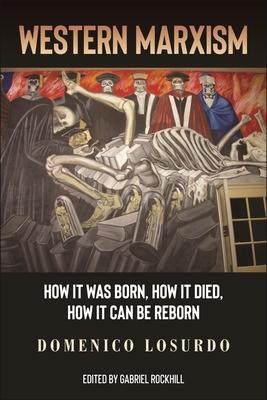A stinging critique of Western Marxism, counterposing its complicity with imperialist logic against a resurgent anti-imperialism
Western Marxism: How It Was Born, How It Died, How It Can Be Reborn is a paradigm-shifting book that provides a trenchant critique of the Western left intelligentsia. It reveals how its dominant ideological orientation--characterized by defeatism, utopianism, and anti-communism--is rooted in the political economy of imperialism. Internationally acclaimed theorist Domenico Losurdo thus provides a fresh and challenging perspective on purportedly radical thinkers who have been widely promoted in the imperial core, including those affiliated with the Frankfurt School, French Theory, and operaismo, as well as Hannah Arendt, Giorgio Agamben, Michael Hardt, and Slavoj Zizek, among others. His critique also has wide-reaching implications for trend-setting discourses inspired by this coterie of intellectuals, from postcolonial and decolonial theory to subaltern studies and beyond. Far from being a negative undertaking, however, this book is grounded in the positive project of reigniting anti-imperialist Marxism.

Western Marxism: How It Was Born, How It Died, How It Can Be Reborn
A stinging critique of Western Marxism, counterposing its complicity with imperialist logic against a resurgent anti-imperialism
Western Marxism: How It Was Born, How It Died, How It Can Be Reborn is a paradigm-shifting book that provides a trenchant critique of the Western left intelligentsia. It reveals how its dominant ideological orientation--characterized by defeatism, utopianism, and anti-communism--is rooted in the political economy of imperialism. Internationally acclaimed theorist Domenico Losurdo thus provides a fresh and challenging perspective on purportedly radical thinkers who have been widely promoted in the imperial core, including those affiliated with the Frankfurt School, French Theory, and operaismo, as well as Hannah Arendt, Giorgio Agamben, Michael Hardt, and Slavoj Zizek, among others. His critique also has wide-reaching implications for trend-setting discourses inspired by this coterie of intellectuals, from postcolonial and decolonial theory to subaltern studies and beyond. Far from being a negative undertaking, however, this book is grounded in the positive project of reigniting anti-imperialist Marxism.